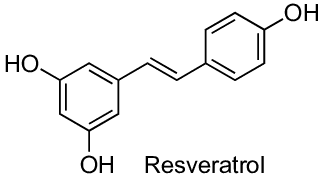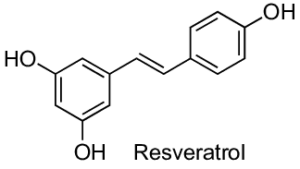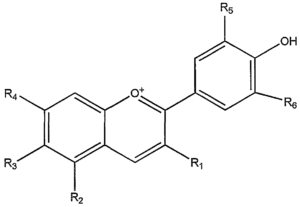What is the result of recent research on antioxidants and cardiovascular diseases?
This post summarizes recent research on antioxidants and cardiovascular diseases. Oxidative stress and inflammation play an important role in the development of cardiovascular diseases. A number of antioxidants have shown to be beneficial to cardiovascular health. Since they exert their protection via different mechanisms, it is possible to take these antioxidants in combination for maximal protection. The health benefits of four antioxidants are discussed below.
Anthocyanins
Anthocyanins are the blue, red, and purple pigments of fruits and vegetables. They have antioxidant, anti-microbial, anti-inflammatory and anti-neurodegenerative activities. Berries are rich in anthocyanins, and eating berries is good for the prevention of cardiovascular diseases. For those who do not eat berries regularly, supplements made of extracts of various berries, such as Isotonix® Maximum ORAC Formula, can be beneficial.
Risk factors for cardiovascular diseases are hypertension (high blood pressure), elevated LDL (bad) cholesterol level and low HDL (good) cholesterol level. Anthocyanins have strong antioxidant and anti-inflammatory properties, which can modulate blood pressure, platelet aggregation and vascular functions. Analyses of data from 17 clinical trials show that anthocyanin intake can reduce triglyceride level, decrease LDL cholesterol and increase HDL cholesterol levels. Furthermore, it also reduces levels of inflammatory markers. All these effects lower the risk of cardiovascular diseases.
Reference: Shah K, Shah P. Effect of Anthocyanin Supplementations on Lipid Profile and Inflammatory Markers: A Systematic Review and Meta-Analysis of Randomized Controlled Trials. Cholesterol. 2018:8450793, 2018.
Astaxanthin
Astaxanthin is the red-orange, lipid-soluble carotenoid pigment found in microalgae, krill, salmon, shrimp, crabs and lobster. Supplements are available for those who do not eat seafood regularly. Astaxanthin has antioxidant and anti-inflammatory properties. It is more potent than vitamin E and beta-carotene.
Astaxanthin provides benefits on cardiovascular health via its antioxidant and anti-inflammatory properties, as well as its ability to modulate lipid and glucose metabolism. It protects cell membrane by scavenging free radicals. It reduces systolic pressure and delays LDL oxidation. Furthermore, astaxanthin increases erythrocyte flexibility and dilates blood vessels with its antioxidant property, but decreases the number of platelets.
On the other hand, its anti-inflammatory property leads to the increase of reverse cholesterol transport. That is, it increases cholesterol removal through the liver, resulting in the decrease of the number of foam cells. This will decrease the formation of atherosclerotic plaques. Together, the antioxidant and anti-inflammatory properties will delay the progression of cardiovascular diseases. Eleven small clinical studies have supported the health benefits of astaxanthin on cardiovascular diseases. For more information on astaxanthin supplement, please go to this page.
References: Pereira CPM, Souza ACR, Vasconcelos AR, Prado PS, Name JJ. Antioxidant and anti‑inflammatory mechanisms of action of astaxanthin in cardiovascular diseases (Review). Int J Mol Med. 47:37–48, 2020.
Oligomer Proanthocyanidin Complexes (OPCs)
Oligomeric Proanthocyanidin Complexes (OPCs) are a class of polyphenols found in fruits, seeds, nuts and bark. OPCs are strong antioxidant, more potent than vitamins C and E. They are extracted from grape seeds and maritime pine bark commercially. Besides antioxidant properties, they also have antibacterial, antiviral, anti-cancer, anti-inflammatory, anti-allergic, anticoagulant, and vasodilatory properties.
Small scale clinical studies showed that OPCs were able to reduce systolic blood pressure in individuals with pre-hypertension by relaxing the peripheral blood vessels. In some but not all studies, they lower LDL (bad cholesterol) levels and increase HDL (good cholesterol) levels, and inhibit oxidation of LDL. They reduce carotid plaque size and reduce risk of cardiovascular diseases significantly on prolong treatment. Furthermore, OPCs increase collagen cross-linking, so they enhance ligament regeneration and strengthen the walls of blood vessels. They are beneficial to patients with bleeding hemorrhoids. For more information on OPC-3 supplement, please go to this page.
Reference: Odai T, Terauchi M, Kato K, Hirose A, Miyasaka N. Effects of Grape Seed Proanthocyanidin Extract on Vascular Endothelial Function in Participants with Prehypertension: A Randomized, Double-Blind, Placebo-Controlled Study. Nutrients. 11: E2844, 2019.
Resveratrol
Resveratrol is a polyphenolic antioxidant present in peanuts, red grapes, apples, black olives, berries and red wines. However, the source of commercial supplement is an Asian plant called Polygonum cuspidatum. Resveratrol is a strong scavenger of free radicals and can also induce activities of numerous antioxidant enzymes. It also has antibacterial, antiviral, anti-inflammatory and anti-cancer activities.
Research showed that resveratrol has anti-atherosclerosis, anti-hypertension, anti-myocardial ischemia and anti-stroke properties. These properties are the result of its antioxidant and anti-inflammatory functions and its ability to stimulate production of nitric oxide (NO). Hence it may be effective in the prevention of cardiovascular diseases. Furthermore, it can decrease plasma triglyceride and LDL levels, and inhibit LDL oxidation. Moreover, it can also suppress vascular smooth muscle cell proliferation and platelet aggregation. These are the key events involved in atherogenesis (plaque formation in arteries). In addition, its ability to increase NO production leads to improved vasodilation and lower systolic blood pressure.
Resveratrol and omega-3 fatty acids (fish oil) have synergistic effects on inflammation, together they will be even more effective in the prevention of cardiovascular diseases. However, results of clinical studies are still controversial, as the doses of resveratrol and duration of treatment varied markedly. For more information on resveratrol supplement, please go to this page.
Reference: Breuss JM, Atanasov AG, Uhrin P. Resveratrol and Its Effects on the Vascular System. Int J Mol Sci. 20:E1523, 2019.


